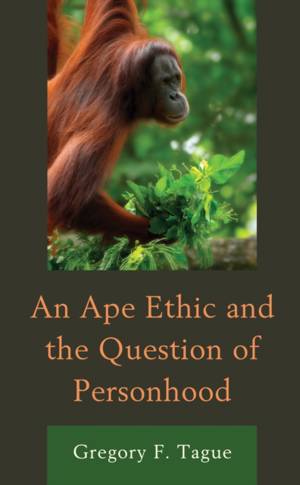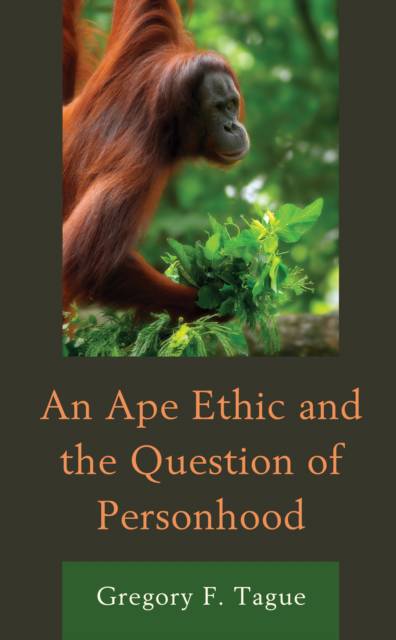
- Afhalen na 1 uur in een winkel met voorraad
- Gratis thuislevering in België vanaf € 30
- Ruim aanbod met 7 miljoen producten
- Afhalen na 1 uur in een winkel met voorraad
- Gratis thuislevering in België vanaf € 30
- Ruim aanbod met 7 miljoen producten
Zoeken
€ 188,45
+ 376 punten
Omschrijving
Gregory F. Tague's An Ape Ethic and the Question of Personhood argues that great apes are moral individuals because they engage in a land ethic as ecosystem engineers to generate ecologically sustainable biomes for themselves and other species. Tague shows that we need to recognize apes as eco-engineers in order to save them and their habitats, and that in so doing, we will ultimately save earth's biosphere. The book draws on extensive empirical research from the ecology and behavior of great apes and synthesizes past and current understanding of the similarities in cognition, social behavior, and culture found in apes. Importantly, this book proposes that differences between humans and apes provide the foundation for the call to recognize forest personhood in the great apes. While all ape species are alike in terms of cognition, intelligence, and behaviors, there is a vital contrast: unlike humans, great apes are efficient ecological engineers. Therefore, simian forest sovereignty is critical to conservation efforts in controlling global warming, and apes should be granted dominion over their tropical forests. Weaving together philosophy, biology, socioecology, and elements from eco-psychology, this book provides a glimmer of hope for future acknowledgment of the inherent ethic that ape species embody in their eco-centered existence on this planet.
Specificaties
Betrokkenen
- Auteur(s):
- Uitgeverij:
Inhoud
- Aantal bladzijden:
- 242
- Taal:
- Engels
Eigenschappen
- Productcode (EAN):
- 9781793619709
- Verschijningsdatum:
- 5/03/2020
- Uitvoering:
- Hardcover
- Formaat:
- Genaaid
- Afmetingen:
- 152 mm x 229 mm
- Gewicht:
- 526 g

Alleen bij Standaard Boekhandel
+ 376 punten op je klantenkaart van Standaard Boekhandel
Beoordelingen
We publiceren alleen reviews die voldoen aan de voorwaarden voor reviews. Bekijk onze voorwaarden voor reviews.











